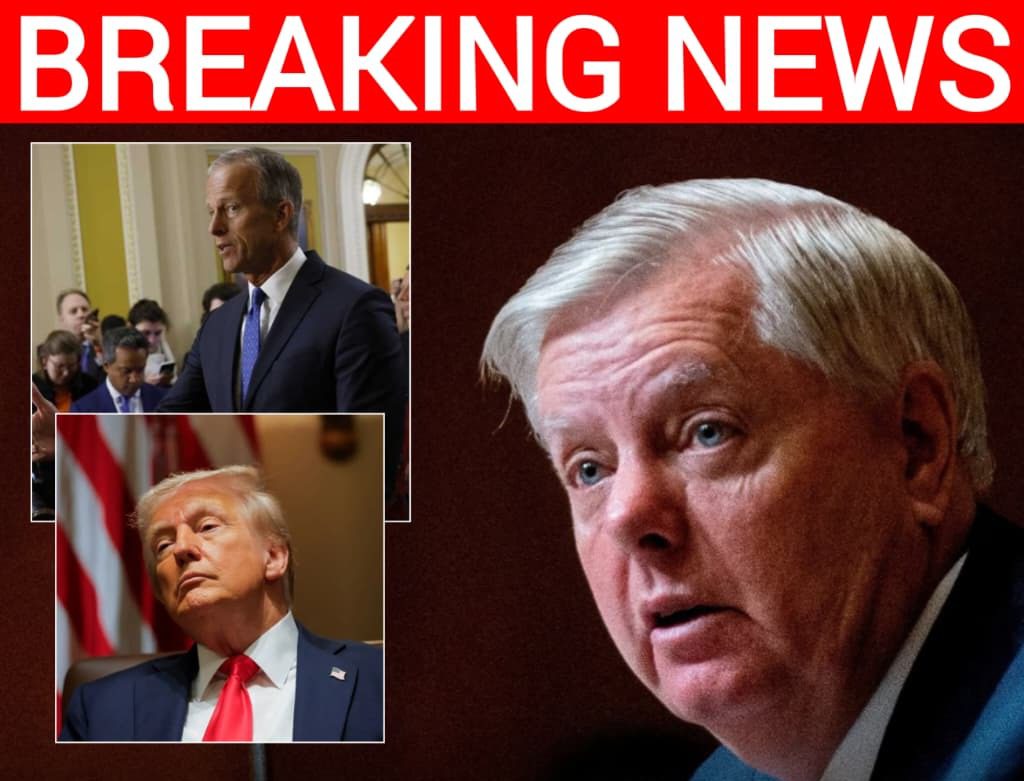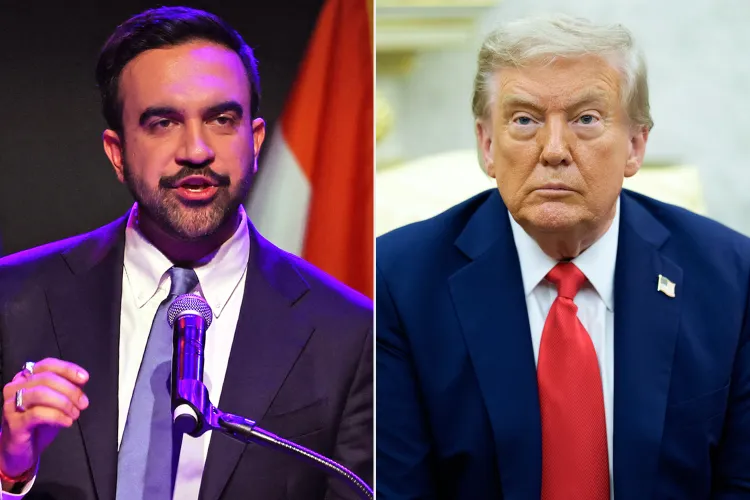Inside Trump’s Fierce Message to Senate Republicans: Why He Says the GOP Faces “Death” Unless They Nuke the Filibuster
Behind closed doors in Washington, former President Donald Trump delivered a message few Republicans were expecting—but one he insisted they needed to hear. According to multiple accounts, including reporting from Punchbowl News, Trump told a private group of Senate Republicans this week that unless they eliminate the filibuster, the GOP will become what he called a “dead party.” It was vintage Trump—direct, unapologetic, and brimming with urgency. His tone, insiders said, wasn’t one of polite persuasion but of blunt warning, the kind that leaves a mark long after the meeting ends.

The private session reportedly took place early Tuesday morning as Republicans gathered to assess the fallout from the government shutdown, which has dragged into its fourth week. The former president’s warning carried both political and strategic weight: the GOP, he said, has been “playing defense for too long.” His argument was simple—Democrats know how to use power when they have it, while Republicans, in his view, have wasted theirs through hesitation, infighting, and outdated procedural rules. “If you don’t act,” Trump reportedly said, “you’ll be sitting in the minority for a generation.”
According to Punchbowl’s Capitol Hill correspondents, Trump was particularly animated when discussing budget reconciliation—the process allowing certain fiscal measures to pass with a simple majority vote. Senator Lindsey Graham, one of Trump’s closest allies in the Senate, reportedly raised reconciliation as an alternative path for major GOP legislation. But Trump shot the idea down immediately. “You and I both know,” he said, “there’s so much you can’t do with reconciliation. It’s time to stop pretending and start governing.” The message was unmistakable: Trump wants the GOP to go on offense, to tear down barriers that keep their legislative agenda from advancing.
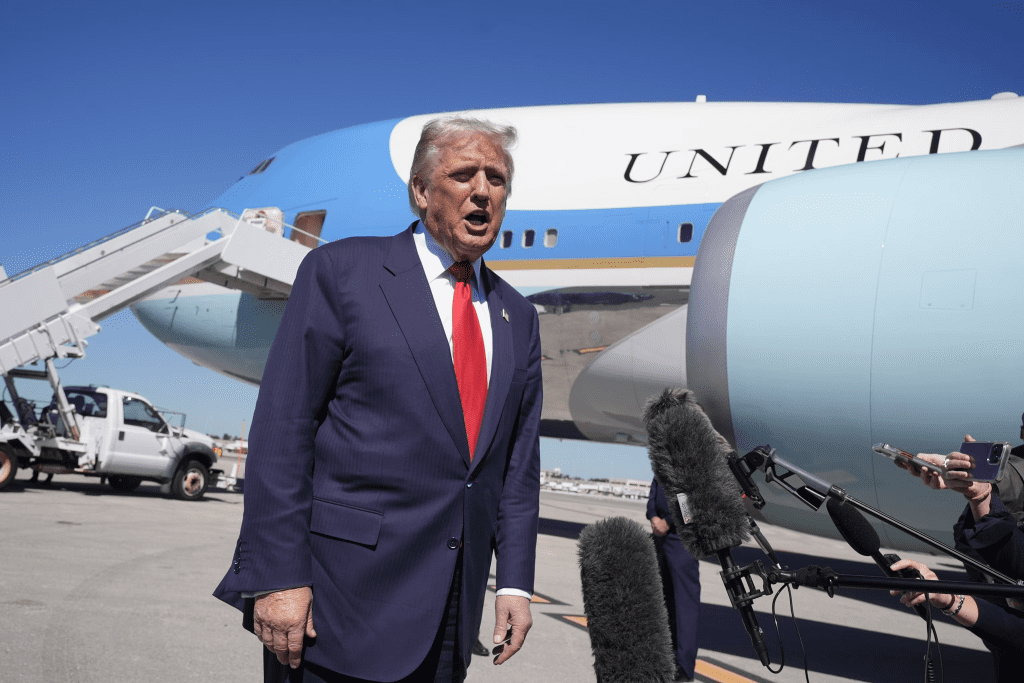
That sense of urgency, Trump suggested, stems from the Republican Party’s current standing with voters. The ongoing government shutdown—triggered by deep divisions between the House and Senate—has hurt the GOP far more than Democrats, according to several internal polls reviewed by party leadership. Trump, who remains the party’s dominant figure heading into 2026, told senators the public perception of dysfunction was killing enthusiasm among Republican voters. “You’re losing the energy, the fight,” he warned. “And while we’re arguing, they’re registering new voters and expanding their base.”
The message landed at a delicate moment. Recent off-year elections have seen stronger-than-expected Democratic turnouts, particularly in suburban regions and swing counties. Trump reportedly cited those numbers directly, telling lawmakers that the Democrats’ ground game—fueled by tech-savvy outreach and activist networks—has “left Republicans flat-footed.” He also reportedly criticized Senate leaders for what he viewed as an overly cautious approach to governing, saying that “every time Republicans get the majority, they start acting like Democrats afraid of bad press.”
For Trump, the filibuster represents the ultimate symbol of Washington paralysis. In his view, the Senate’s 60-vote threshold has become a weapon Democrats exploit while pretending to defend “bipartisanship.” He reportedly reminded the group that under his presidency, Democrats had already vowed to scrap the rule if given the chance—especially during the Supreme Court battles that defined his term. “They’ll kill it the second it helps them,” Trump said, according to one attendee. “The only question is whether we have the courage to do it first.”
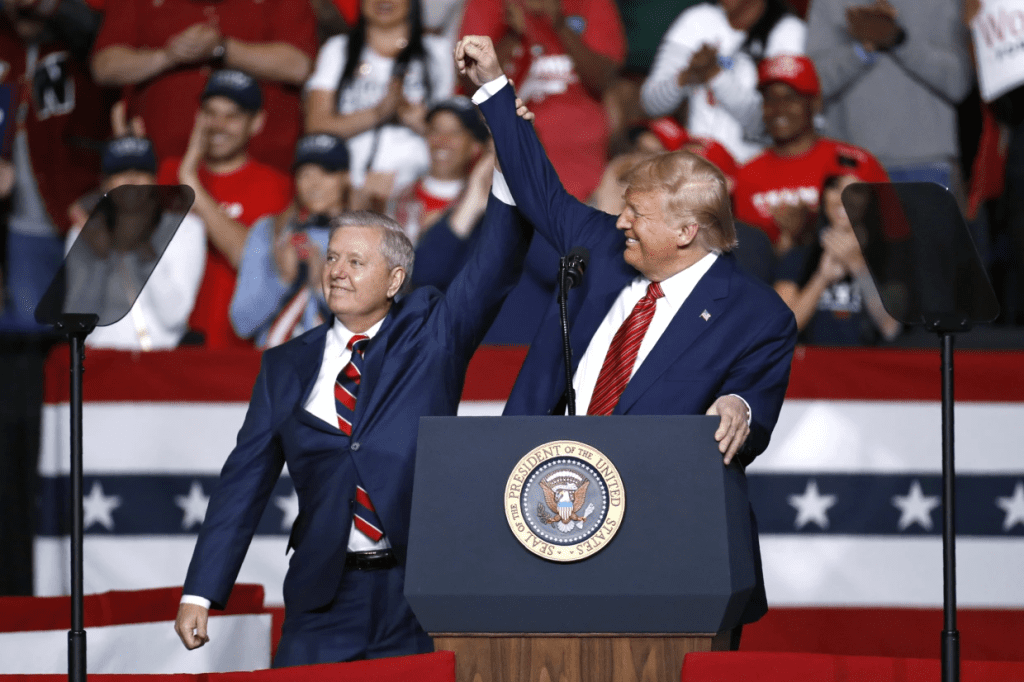
Inside the room, reactions were mixed. Some senators reportedly nodded in agreement, while others appeared uneasy. Senate Minority Whip John Thune, known for his measured tone, is said to have responded that procedural changes require consensus and caution. Trump countered that consensus had become a luxury Republicans couldn’t afford. “If we wait for everyone to feel comfortable,” he said, “we’ll still be waiting after we’ve lost everything.”
Outside the closed doors, word of the meeting spread quickly across Capitol Hill. Democrats pounced on Trump’s remarks as proof that the GOP remains in turmoil, while conservative activists online celebrated the former president’s boldness. “This is what leadership looks like,” one commentator posted on Truth Social. “Trump is saying what the rest of them are too afraid to say.” Even among his critics, few could deny that Trump’s ability to dominate the conversation remains unmatched. Once again, he managed to shift the party’s focus in a single morning.
Trump’s allies say his comments reflect more than strategy—they reflect frustration. Since leaving office, Trump has watched the GOP struggle to unify around messaging and legislative priorities. His advisers privately note that he views the current leadership as too passive, particularly during a moment when voters are demanding action on border security, inflation, and foreign policy. Ending the filibuster, in Trump’s mind, isn’t just about passing bills—it’s about reclaiming momentum. “He sees it as the psychological wall that keeps Republicans from fighting hard enough,” one adviser said.
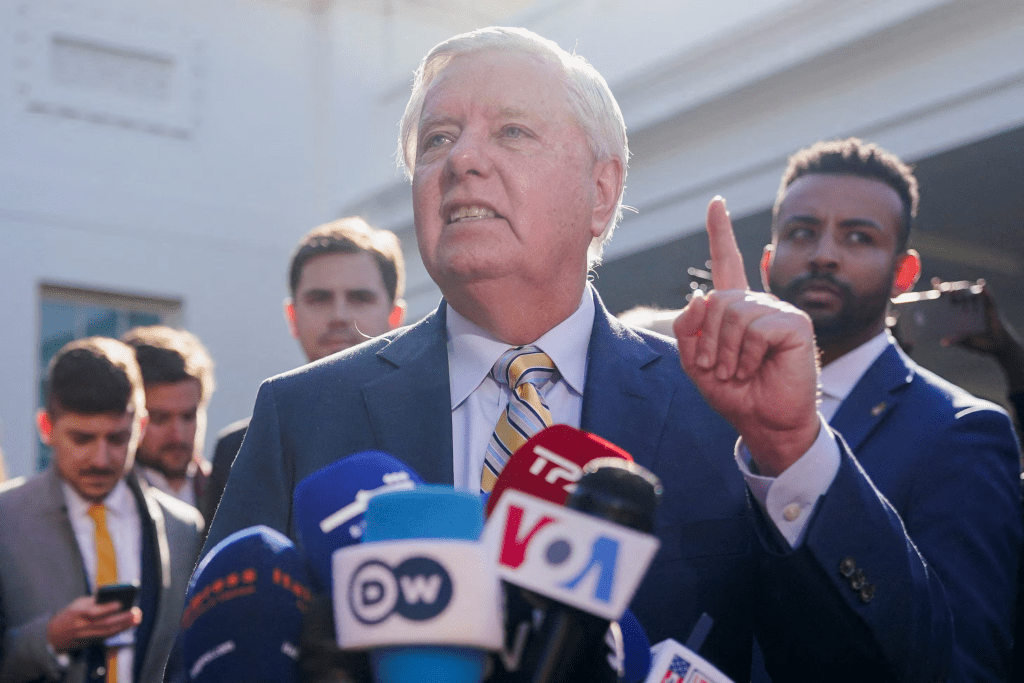
For Lindsey Graham, the exchange was emblematic of Trump’s style—unfiltered but always tactical. Graham has long defended the filibuster as a safeguard against political whiplash, but even he acknowledged that the Senate’s current gridlock is unsustainable. “I understand where the president’s coming from,” Graham told reporters later that afternoon. “He wants results. The American people want results.” Still, Graham stopped short of endorsing a full repeal, suggesting instead that procedural reforms could balance efficiency with stability.
As Trump’s comments reverberated, political analysts were quick to note that his warning—“dead party”—wasn’t merely rhetoric. Polling data shows that confidence in the Republican Party’s direction has dipped among independent voters and younger conservatives, many of whom say they’re frustrated by what they see as “endless stalemates” in Congress. Trump’s critics argue that eliminating the filibuster could backfire if Democrats regain control of the Senate. But Trump’s supporters counter that the greater risk lies in doing nothing. “If you’re afraid to use power,” one GOP strategist said, “you don’t deserve to have it.”
The former president’s timing was strategic. His remarks came as Senate Republicans face mounting pressure to reopen the government and regain footing after weeks of negative coverage. Sources familiar with the meeting say Trump made clear that failure to deliver results now would haunt the party well into the 2026 midterms. “The shutdown is killing us,” he reportedly said. “The Democrats aren’t paying the price—we are. And if you can’t fix that, at least fix the rules that make fixing it impossible.”
By the time the meeting ended, there was no formal decision, but the tone had shifted. Senators left quietly, some visibly contemplative. Within hours, political operatives began polling the idea of a filibuster repeal among Republican voters. The early data was startling: 64 percent of Republican respondents said they supported ending or limiting the filibuster to “advance conservative priorities,” marking a significant change from two years earlier. For Trump, that’s the opening he needs.
Whether the GOP heeds his warning remains to be seen. What’s certain is that Trump’s influence remains as forceful as ever. Even from outside the Oval Office, he continues to shape the party’s internal debates—through pressure, persuasion, and the unmistakable weight of his words. As one senior aide put it, “When Trump speaks to them like this, it’s not a suggestion. It’s a line in the sand.”
To his supporters, this is the former president at his best—assertive, strategic, and willing to challenge his own party for the sake of winning. To his detractors, it’s a risky move that could unravel the Senate’s last barrier to one-party rule. But for Trump, it’s all part of the same mission he’s championed for years: restoring what he calls “America First strength” to a political system he believes has grown too timid to lead.
